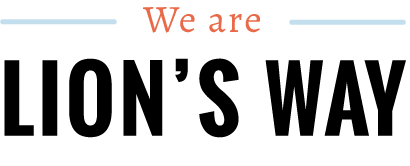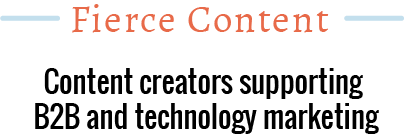We make sure your technology is not lost in translation
The conference breaks for networking and we pair off to chat. We share names – first our own and then our companies, then comes the inevitable question: So, what do you do?
I used to answer this question like a tagline: At Lion’s Way, we develop compelling content that engages technology decision-makers with authentic messages. Now, I’m more likely to say: We are translators. We are technology specialists who can understand and distill complex information about a given technology’s applications, then write about it. We love creating content but more than that, we love what we’re writing about.
It seems more accurate to say that I translate rather than create. I review the capabilities of the products and services then describe the possibilities for the audience at hand. And it’s an absolute joy.
What does it mean to translate tech?
There’s a saying that great writers can write about anything. At Lion’s Way, we disagree. We have devoted a lot of time to understand the companies we work with, their unique offer, how the technology works, and the specific needs of technical audiences. Like a language, the more time you spend with a technology tool or concept, the more you understand its nuance, cultural context, the playfulness of the language and its idiom. Translating tech helps the makers’ vision come alive. That’s why we do it.
How we learn your language
Whenever we start a project, we have three internal directions in mind: Be a servant, be a pro, and be curious. That mindset keeps us asking the right questions of our clients and ourselves to produce the best content we can. Before we finish our final version, we ask ourselves again: Have we been a servant, been a pro, and been curious? If the answer is no, we go back and try again.
Being a servant means considering the client’s needs and goals in everything we do. This means checking our own assumptions and understandings and putting ourselves in the place of the audience. What motivates them? What are their pain points? What would make their work easier, and how does the client’s offer help? It doesn’t matter how clever the writing is if the audience can’t relate.
Translators often have a choice of two or more words. It is experience that allows them to consider the nuance of each and make the right choice.
Being a professional involves acting with integrity, honesty, and respect as a writer, and also spending time and energy to do a great job. It’s that professionalism that drives our producers to understand your company and the way you describe your offer. But more than that, we also strive to understand how the technology works so we can speak to its usefulness and how it can meet the needs of audiences. This is a key point of difference for Lion’s Way: We don’t regurgitate content you have already developed and polish it, we articulate how your enterprise works, what makes it special, and how it can help your customers.
And curiosity. We’d be lost without it. Our “Lions” are naturally curious people and our fireside chats are often about taking things apart to see how they work – technologies, systems, even sentences. We are nerds and we must constantly feed our nerdiness by learning new things. If what it takes to understand your technology is to set up a server in our office and run your software, then that’s what we will do. Curiosity is also vital to the other two mottos because we can’t be a servant to client goals or a pro if we don’t know what we’re talking about.
We help create interest and drive sales
Often in the course of our work, we discover new ways to articulate how your product can help your customers – in some cases, we even find new applications or untapped audiences. With service, professionalism, and curiosity, we seek to understand and describe your unique value proposition to the right audience and develop content that meets your conversion needs.
Lion’s Way has been translating technology into outcomes for a decade. Are we speaking your language? Get in touch.
Main image credit: *The U.S. National Archives, CC*



